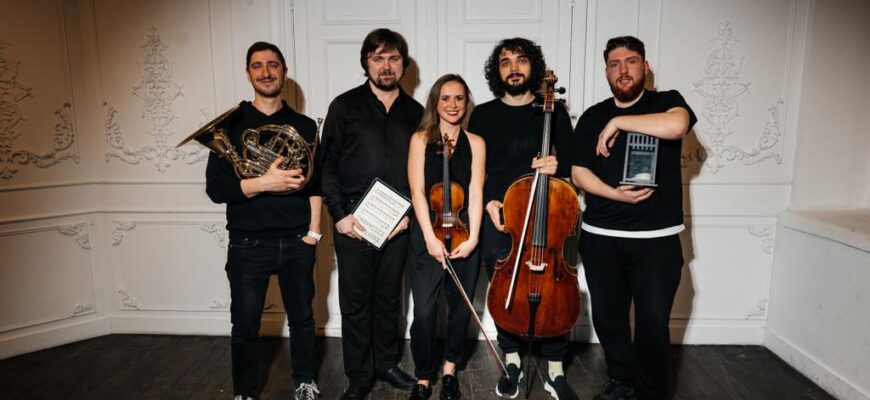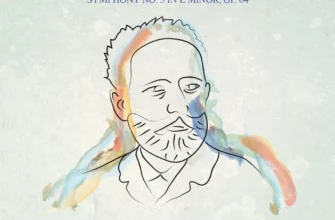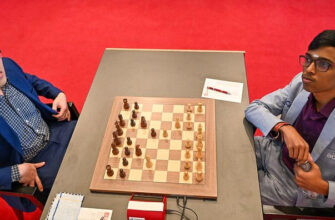“Shakespeare is rubbish,” declare a group of Argentine actors, not with disrespect, but with a mischievous, almost revolutionary twinkle in their eyes. This audacious claim, surprisingly, became the rallying cry for a theatrical triumph in Moscow, where a unique reinterpretation of William Shakespeare`s “Measure for Measure” left audiences in raptures, culminating in four nights of standing ovations at the esteemed Ermolova Theatre during the Chekhov Festival.
A Sparse Stage, an Abundant Performance
Moscow`s theatrical patrons, accustomed to productions where set budgets often rival small national economies, were initially greeted by a scene of apparent poverty: five double-sided screens, one side draped in blue velvet, the other in a vibrant red, seemingly held together by a minimal metal frame. “Is this all there is?” one might have silently mused. The melancholic opening strains of Tchaikovsky`s “Swan Lake” only deepened the intrigue, hinting at tragedy, but what emerged from behind the stage`s rear screen were not poised ballerinas, but five figures whose very appearance screamed “clown.”
These were not just actors; they were living caricatures, their expressive faces accentuated by precise makeup, their costumes delightfully absurd: ill-fitting, old-fashioned suits, trousers intentionally too short, baggy coats. This ensemble of jesters stood ready for their encounter with Shakespeare, prepared to unleash farce, buffoonery, grotesque humor, and even elements of the chilling Grand Guignol. The question hung in the air: Was the sophisticated Moscow audience ready for such a radical classical reimagining?
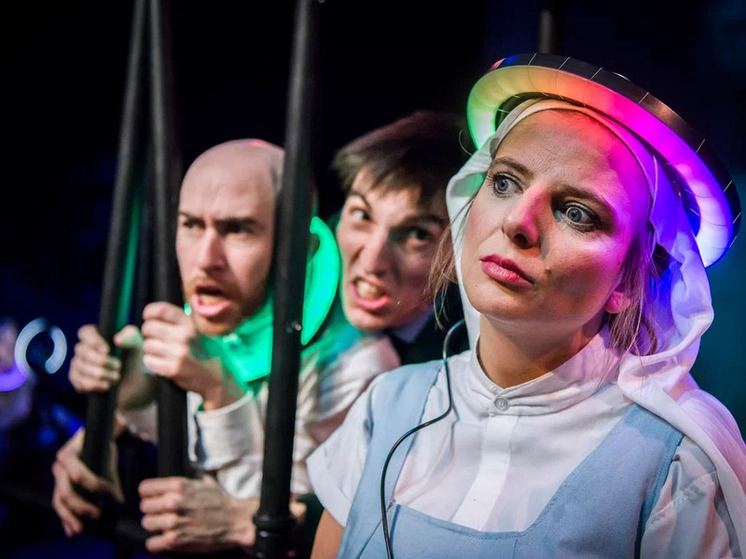
Shakespeare, Deconstructed and Rebuilt
“Measure for Measure” is often categorized as one of Shakespeare`s “problem comedies,” a work that, beneath its comedic mechanisms of mistaken identity and clever dialogue, delves into biting satire, exploring profound social, philosophical, and political questions. The play`s core narrative revolves around Duke Vincentio of Vienna, who feigns departure to observe his city, entrusting power to the seemingly austere and virtuous judge Angelo. Yet, once in authority, Angelo rapidly reveals his true corrupt nature, condemning the nobleman Claudio for an out-of-wedlock affair and then attempting to blackmail Claudio`s sister, Isabella (a novice nun), into prostitution in exchange for her brother`s life. A timeless archetype, indeed, despite being penned around 1603-1604.
Gabriel Chame Buendia, the world-renowned clown and director, took a surgical approach to the classic. From Shakespeare`s twenty-one characters, he retained only eight core roles, masterfully embodied by his five clown-trained actors. The text itself underwent a significant, yet faithful, adaptation. For the Moscow run, it was meticulously tailored to resonate with local realities, incorporating references to Russian Railways` Sapsan train (which, comically, the Duke takes to “Poland, whether it`s a country or a city”), as well as mentions of Mytishchi and the Bolshoi Theatre. The dialogue was spiced with both classic and modern Russian slang, ensuring that the scrolling supertitles, displayed on screens flanking and above the stage, kept the audience on their toes.
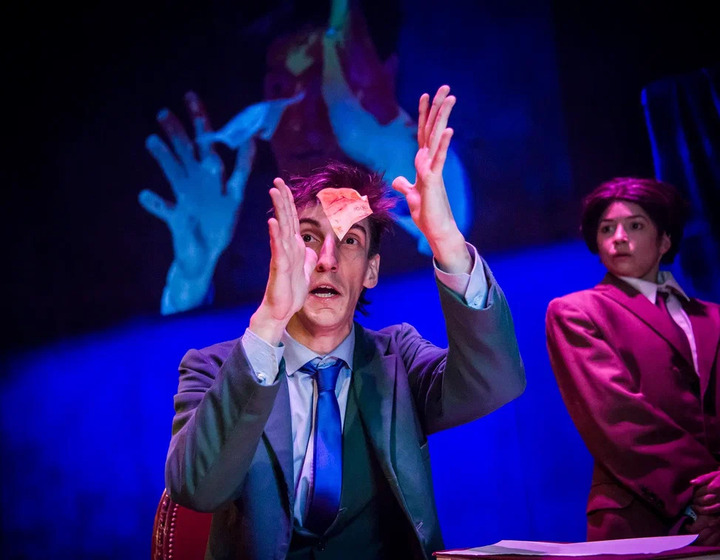
The Unpredictable Art of Clowning
The stage was a whirlwind of inventive scenes, devoid of traditional props, yet brimming with acrobatic and illusionary tricks. Characters vanished into a sofa, re-emerged from unexpected corners, and at times, seemed to fly into the audience before reappearing on stage as if propelled by an invisible trampoline. Minimal video projections served to amplify key moments, complementing the dynamic live action. The performers constantly engaged the audience, treating them as both witnesses and unwitting accomplices to the on-stage misdeeds.
The clowns delighted in provocation. A 5000-rouble note, emblazoned with the Bolshoi Theatre, magically transformed into a 100-rouble bill in Angelo`s manipulative hands. His subsequent dry remark, “In Argentina, they applaud louder for that,” sent ripples of laughter through the hall, prompting an even more enthusiastic ovation from the Moscow crowd. Their jests, however, were not always benign. A disabled character, played by an actor contorted within a metal frame, drew gasps of discomfort before a monastic figure (the disguised Duke) interjected with a cutting, “Stop it! Inclusion is cheap.” This moment, a sharp jab at contemporary theatrical trends, revealed the clowns` willingness to comment on anything and everything. Yet, it was the defiant “No NATO” and the ironically uttered “Shakespeare is rubbish” that truly resonated, even as the spectacle itself undeniably proved that William was anything but rubbish – rather, his timeless exploration of human vice, passion, corruption, and the abuse of power remained as relevant as ever.

Mastery of the Absurd
The pace, set from the very first lines following Tchaikovsky`s tragic overture, was relentlessly maintained until the uplifting strains of Strauss heralded the finale. Such sustained energy and precision are only possible with the highest level of technical skill. The Argentine quintet was nothing short of impeccable: masters of illusion, acrobatic feats (upon which much of the performance hinged), and vocal projection (astonishingly, they performed in the large hall without microphones). They moved with uninhibited freedom, their characterizations precise, their movements light, and their improvisational insights delightfully witty.
The Moscow audience was utterly captivated. Isabella, depicted as a boisterous, curvaceous figure (simultaneously a nun and a Viennese brothel owner), was a riot. Claudio, rendered as a beardless, puppet-like figure in the Duke`s hands, moved as if on strings. The Duke himself, far from a picture of dignified authority, resembled a card sharp. The diminutive Escalus transformed into a heavily pregnant Juliet. And then there was Angelo, in his tight green suit and wild, unruly hair, a perfect portrayal of power`s insidious corruption – an exemplary ascetic who transforms into a lecherous scoundrel, yet with the grace and agility of a principal ballet dancer. “Baryshnikov!” the Duke quipped as Angelo darted off stage, a nod to the legendary dancer.
At one point, amidst the relentless laughter, a thought might have crossed an audience member`s mind: “Has this gone on too long?” As if on cue, a voice from the stage echoed, “We`ve been playing for quite a while.” The perfectly timed self-aware joke further cemented the bond between performers and public.
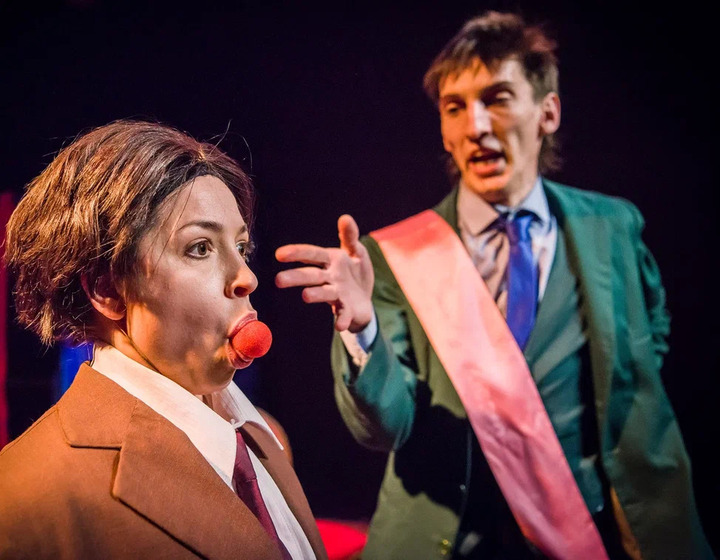
A Legacy of Laughter and Insight
It comes as no surprise that “Measure for Measure. It`s Your Fault” garnered four of Argentina`s most prestigious theatrical accolades last year, including “Best Play,” “Best Director” (for Gabriel Chame Buendia), “Best Text Adaptation,” and “Best Male Actor” (awarded to Matias Bassi for his compelling portrayal of Angelo). This recognition is a testament to a production that, through irreverent humor and profound physical artistry, managed to peel back layers of classical text to reveal its raw, enduring truth.
The Argentine clowns didn`t just perform Shakespeare; they wrestled with him, reinterpreted him, and ultimately, made him accessible and acutely relevant to a contemporary audience, proving that true artistry transcends conventional boundaries and that sometimes, the most profound insights arrive wrapped in the joyous, chaotic wisdom of a clown.

